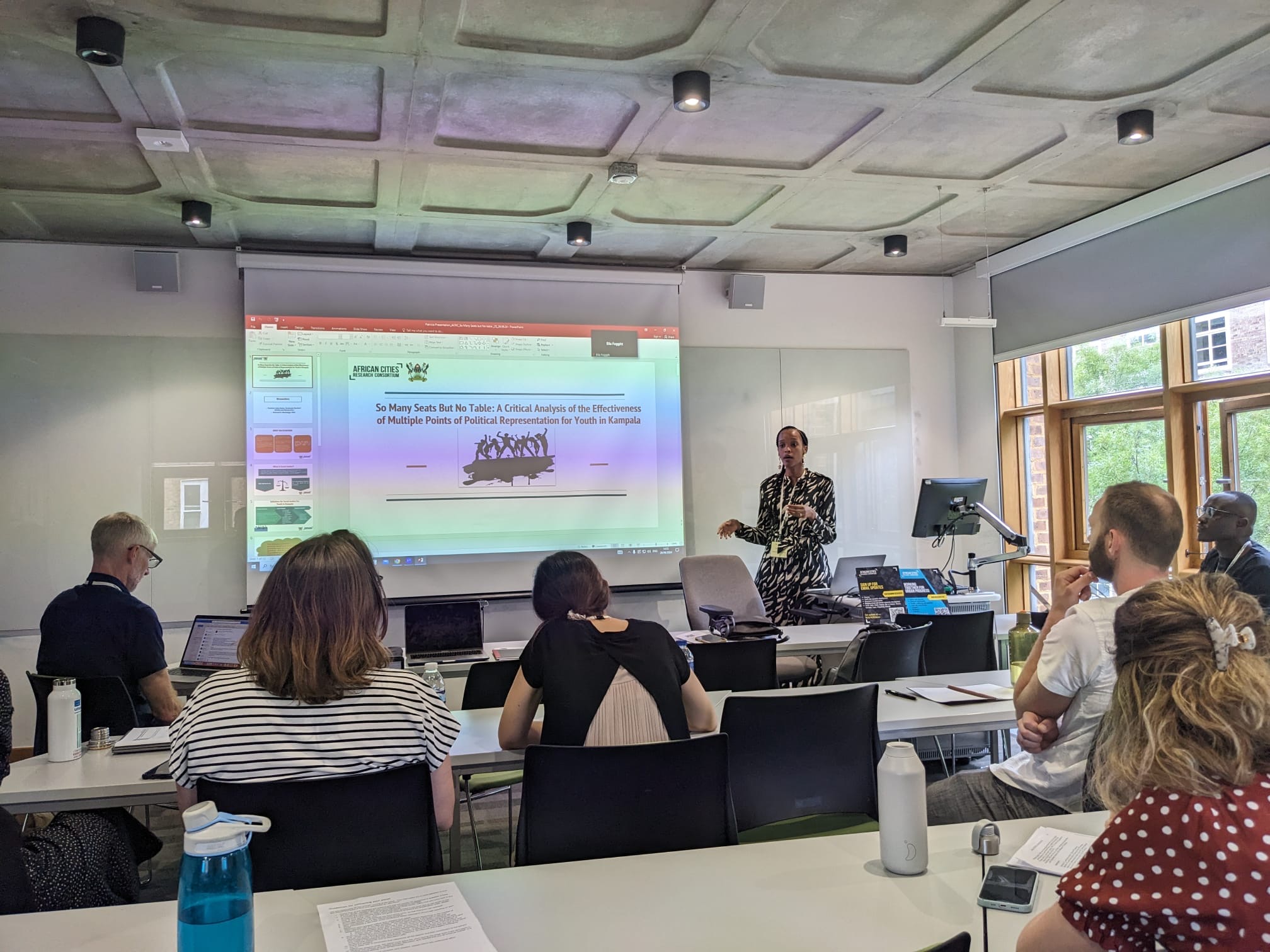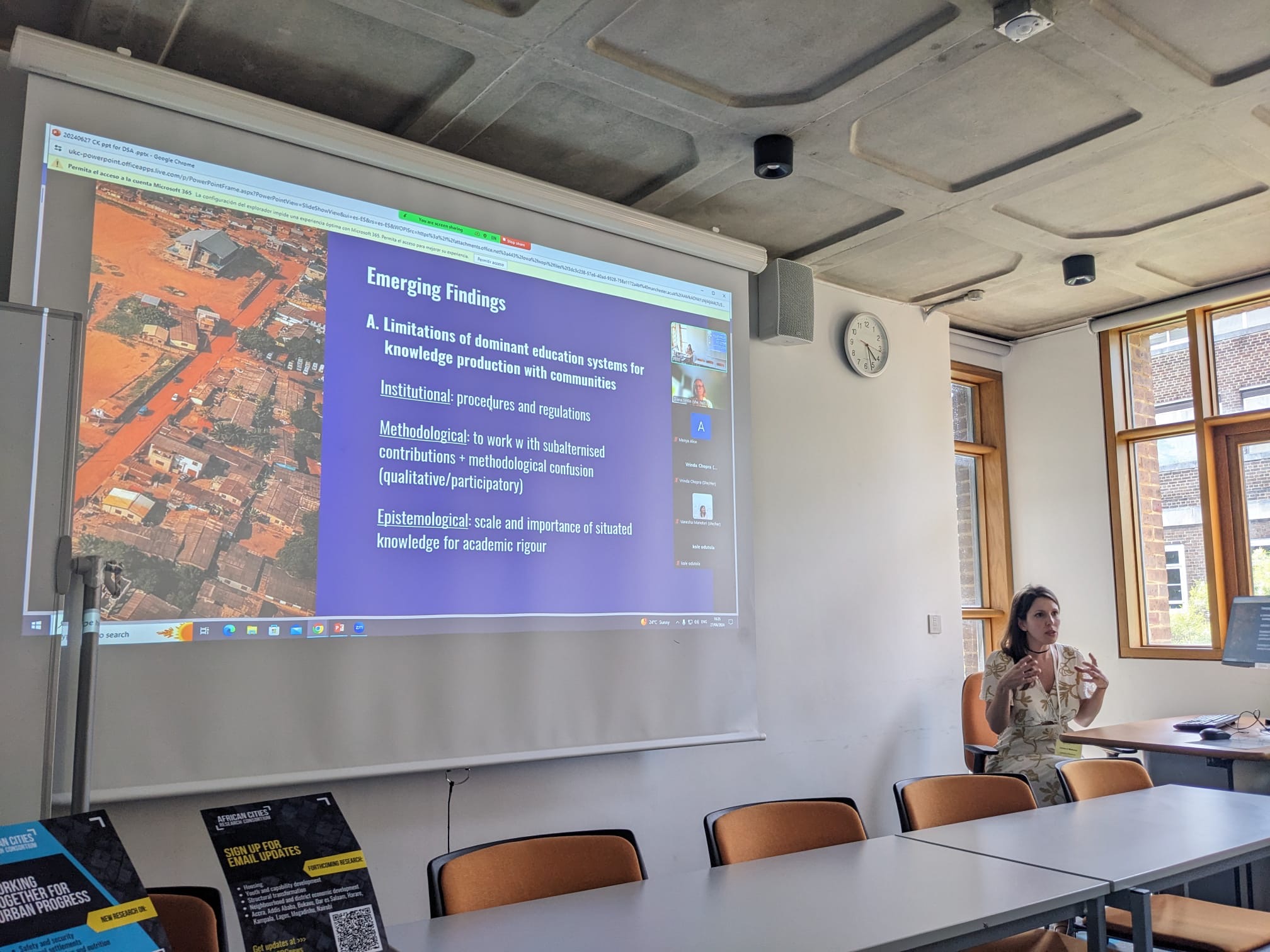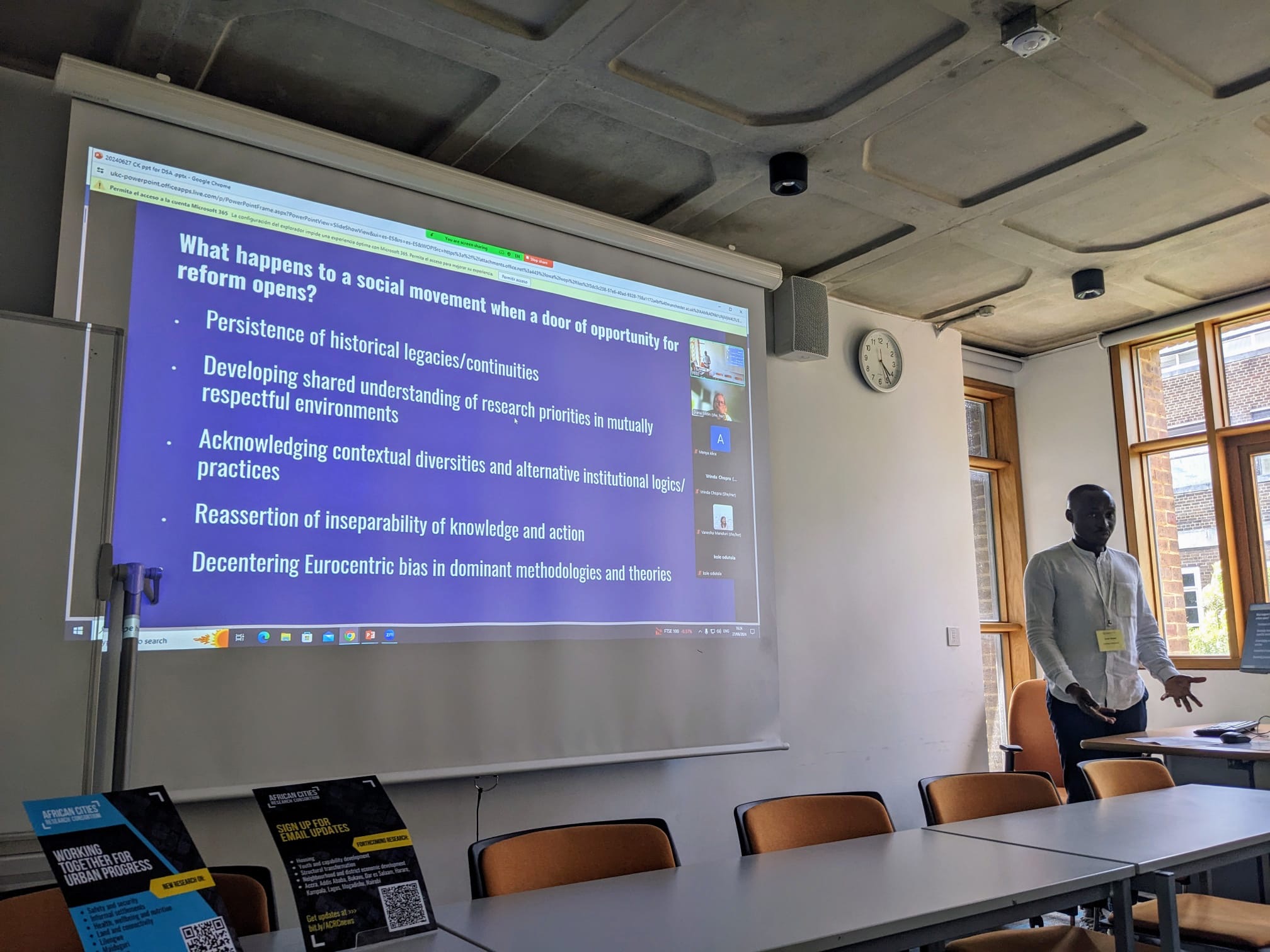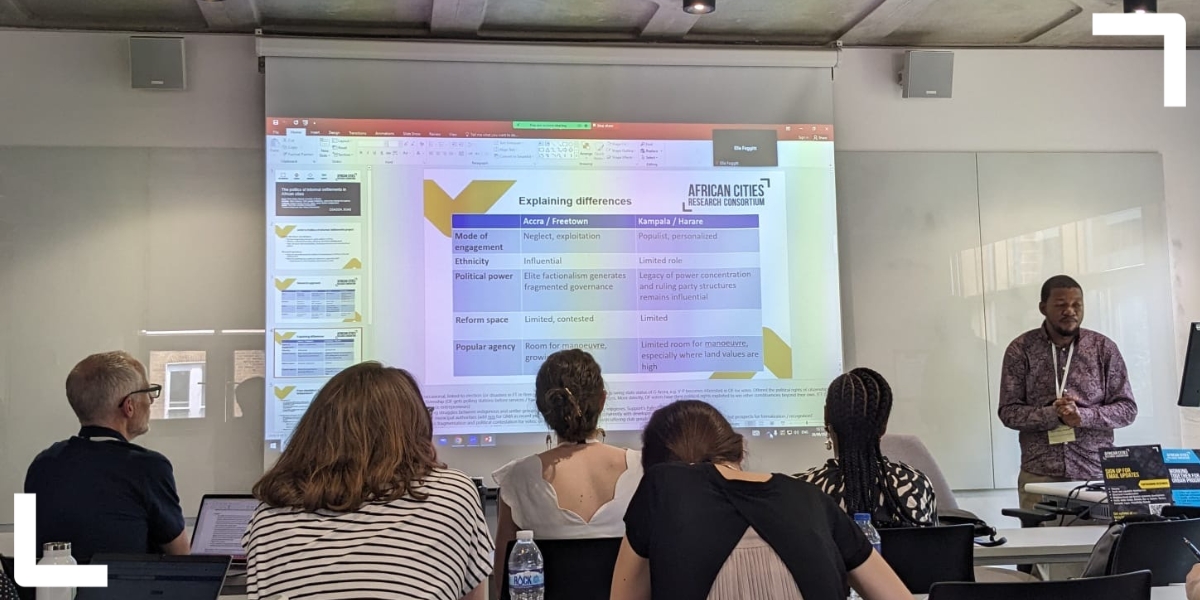By Chris Jordan
With our publication rate hotting up over the last couple of months, it was perhaps unsurprising that ACRC researchers had much to say at the annual Development Studies Association (DSA) Conference at SOAS last week.
ACRC convened two well-attended panel sessions. First, Patience Adzande, Smith Ouma and Sam Hickey hosted a fascinating panel focused on investigating the politics of social (in)justice in African Cities.
The session kicked off with a summary of the youth and capability development domain research. Olha Homonchuk highlighted that young people in African cities are often seen as either the victims or the perpetrators of urban problems – but rarely as the solution. In many ways, the experience of young people within African cities seems to reflect the broader ACRC findings in microcosm. Issues of safety and security, limited educational access, difficulties in accessing stable employment and the resulting mental health crisis were key issues picked up across ACRC, but emerge particularly strongly within the youth research.
We then drilled down into the youth experience in Kampala. Patricia Katto explored the startling disconnect between formal opportunities for youth representation and the day-to-day realities for most young people in the city. While in theory there are ringfenced positions for young people within formal city governance structures, in practice they are not sufficient to counteract the pervasive sense of marginalisation that most of the city’s young people feel.

Sam Hickey presents emerging ACRC research exploring the politics of informal settlements

Patricia Katto shares findings from youth and capability development research in Kampala
Abdul-Gafaru Abdulai and Sam Hickey gave an overview of our emerging work exploring the politics of informal settlements. Their analysis looks at the linkages between national political settlements and everyday politics experienced by communities. They highlighted the different experiences of informal settlements populated by indigenous communities and more recent squatters, as well as the clear link between rising land values and elite interest in particular settlements. They also propose that the idea of “forbearance”, developed within the Latin American context, may provide a more useful political lens than the traditional idea of clientelism, which tends to be used within the African context.
Our second session, convened by Daniela Beltrame and Diana Mitlin, looked at community knowledge in academic research: in pursuit of epistemic justice. The importance of community knowledge has been a key facet of our research so far (particularly around informal settlements), and will be led by Beth Chitekwe-Biti as research director during the implementation phase of work.
A wide variety of presenters (from beyond ACRC) highlighted the very real benefits for both themselves as researchers and for individuals working around community knowledge processes – while acknowledging the constant tensions, contradictions and practical issues that had to be navigated along the way. Compensation for community members’ time, institutional barriers and the role of intermediaries within communities were themes throughout.
As Diana Mitlin summarised, recognising the messiness at the interface between community and academic knowledge processes is essential for researchers who reject the premise that knowledge can neatly fit into predefined categories.
The ACRC experiences around community knowledge were presented by Daniela Beltrame and Smith Ouma. Smith highlighted the fact that for all organised communities, the generation of knowledge is inseparable from action. Compensation, commodification and individualisation of gains were also issues emphasised across the community members who worked as part of the ACRC city research teams. The value of community members’ time, networks and knowledge was reflected in the challenge that “we are not gonna do your donkey work”.
The gatekeeping role of intermediary NGOs, particularly around access and accountability, was another issue to be navigated. Daniela Beltrame, who is currently undertaking her own PhD based on participatory action research, also discussed the positive ways in which research was being seen as a legitimate career option for some community members: “knowledge is a paying business, and it can be a career”.

Daniela Beltrame explores emerging findings around community knowledge

Smith Ouma highlights the link between knowledge and action in organised communities
To keep up to date with all of ACRC’s forthcoming publications, as well as ongoing conversations around community knowledge on our blog and podcast, please sign up for regular e-newsletters.
Photo credits: Chris Jordan. Header photo shows Abdul-Gafaru Abdulai presenting emerging findings around the politics of informal settlements in Accra, Freetown, Kampala and Harare.
The African Cities blog is licensed under Creative Commons Attribution-NonCommercial-NoDerivatives 4.0 International (CC BY-NC-ND 4.0), which means you are welcome to repost this content as long as you provide full credit and a link to this original post.


